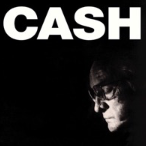All Activity
- Past hour
-
Being a month from 70 I am physically active and capable. But age is more than a number and I'm constantly grinding through health issues as are most at my age. I have no suggestions for others dealing with aging other than Mungers "soldier on" without complaint. And maybe be thankful for today's medical technology.
- Today
-
I just turned 71. Advice I can give to you youngsters is use it or loose it, https://www.bettermovement.org/blog/2012/use-or-lose-looks-like I still do Tae Kwon Do, among many other physical activities, and I can still kick above my head. Keep active mentally. I can't imagine ever retiring. I just published a book last July and this past academic year I taught a new course I created that has nothing to do with electrical engineering, my main field.
-
https://www.foreignaffairs.com/ukraine/why-ukraine-should-keep-striking-russian-oil-refineries
- Yesterday
-
@gfp I have been tracking JACK but what keeps me away is the relatively large leverage. I think the issues round the CA fast food minimum wage can be overcome, but I have an aversion against high leverage and that kept me away from buying JACk. I would love to hear your perspective on this issue.
-
Thanks for this. Summary in the ATCO thread https://thecobf.com/forum/topic/1691-atco-atlas-corp/?do=findComment&comment=563864
-
Here is the Atlas Q1 report - https://app.quotemedia.com/data/downloadFiling?webmasterId=101533&ref=318311121&type=HTML&symbol=ATCO&cdn=724594abd25878a3690de8060552477c&companyName=Atlas+Corp.&formType=6-K&dateFiled=2024-05-10
-
39% annualized after fees.. Jim is the goat. He also has a lot of goodwill in the stem research space especially in the quant start up space, funded so many labs/companies that couldn't find funding elsewhere.
-
I think Peter Lynch was right when he said that "if you can 8 + 8 and come up with a number close to 16, then you know enough math to be a good investor." He thought the stomach was a more important organ than the brain when it comes to investing. I learned a lot from books like "Fearless Golf" which is written by a sports psychologist who works with the traders at Point 72. It turns out that extreme performance has the same attributes in every endeavor. The author of Fearless Golf said that Steve Cohen has more in common with Tiger Woods or the best heart surgeon in the world than he has with traders who are in the top 10% of his own profession. This short book was written by someone who a Gold and Silver medal in competitive shooting at two Olympics in the 1970s and it's one of the first books to talk about the mental preparation, which is applicable to other endeavors like investing. His book has diagrams of 3 overlapping circle (the conscious mind, the subconscious mind and the self image) which have to be balanced in order to produce performance. Competence affects confidence, so practice and having the skillset to move with 100% conviction is key to great performance. You can't just psych yourself up for something because your subconscious and self image don't have the required memory of successful repetitions to pull it off. It has similarities to the paradox that Fearless Golf discusses. You need to focus only on the task, not the outcome. If you think about anything else, like your getting a good score, then you won't make the shot and your score will be terrible. If you don't think about your score, your score will be great because you are only focusing on the task. Translated to investing, if you think about your P&L or your bonus, or your house payment then you won't be investing with the right mindset. With the right process -- given all my opportunities right now, what is the best use of my available cash-- the results take care of themselves. The thinking is the same in Annie Duke's book. It's interesting because in investing there is a lot of wisdom about looking at your failures to see where you went wrong. This has a different take and when he's asked about a shot he missed, he only wants to discuss or think about the successes because he doesn't want to think about mistakes, since it's not what he should be focusing on. I'm not entirely convinced that's the best tactic, since you won't know what to work on if you don't look at mistakes. I do vividly remember a seminar I took once with a famous jiu jitsu guy who I'm convinced was insane. To say he was intense was an understatement. He accidentally choked out two people while demonstrating a technique and each time just slapped the person on the back and said "go get a drink of water and come back to the mat." During the question and answer section someone asked if you should drill/practice your good and bad side or just your good side. His face got red and a vein in his head bulged and he yelled "Hey! Don't ever say that! You don't have a good side and a bad side. You have a good side and a GREAT side! Don't ever let weakness creep in or it will rot you from the inside." Buffett said that when you see those no-brainer opportunities which rain down money, you should run out there with a giant bucket, not a thimble because they are rare. I think that's the confidence that comes from competence and 100% belief in yourself that he's talking about. There is no self doubt because that isn't part of the process, it's just the numbers. He does socialize with other shooters, who are his competitors, but also his models. Winners have the same mindset and help each other get better, which is why COBF is such an interesting place. It's a short book, less than 200pp and a bit dated since it was written in the 1980s, but still interesting even if people have studied and advanced the field of performance psychology a lot since then. And if you're interested in some entertainment. Here's proof that I am not exaggerating about the jiu jitsu guy
-

I Need a Laugh. Tell me a Joke. Keep em PC.
formthirteen replied to doughishere's topic in General Discussion
-

Buffett/Berkshire - general news
John Hjorth replied to fareastwarriors's topic in Berkshire Hathaway
Actually a totally wild story, almost beyond imagination. After an endless amount work and transactions during now 59 years, this piece of crap is by now rank #8 on the list of world's most valuable companies. Somehow I always end up thinking in visualizations about this dog comes to think Garfield The Cat's doggo friend Odie chasing cars, remembering a cartoon, where Odie actually catches the rear bumper on a car, stopping, and thinking "What to do now? [Odie at the end of the carton seen siting on his butt in a thoughtfull moment, - the bumper in his mouth looking like some kind of oversize moustache beard, thinking : "Should this be fun?" - The answer is "Yes". -
Yesterday's close was 1562.45, with an intraday high of 1575.31. Closed today at a new high, 1,571.02, with a higher intra-day/all-time high of 1580.01. Previous Close 1,562.45 Open 1,560.74 Bid 1,568.56 x 0 Ask 1,572.00 x 0 Day's Range 1,559.77 - 1,580.01 52 Week Range 932.00 - 1,580.01 With Fairfax very actively repurchasing in April, we should not be happy about this, but...
-
Yes very true. I think at it's largest, they were using $10-$20b in equity plus 4-5x leverage. It's crazy to see Renaissance Technology as large shareholders in many of the nano-caps I look at, but that money has to go somewhere.
-
The dog that caught the bus. At least it came with a snazzy name.
-
RIP Jim Simons. The Man Who Solved the Market has some interesting read on how Jim Simons did it.
-
https://finance.yahoo.com/m/6f63c4a9-f79e-398b-abbd-30450d38d1df/this-day-in-markets-history-.html This Day in Markets History: Warren Buffett Takes Control of Berkshire Hathaway On May 10, 1965, In a boardroom on Cove St. in New Bedford, Mass., a young, crew-cut Warren Buffett took control of a decrepit textile maker. Stock in Berkshire Hathaway closed that day at $18 a share. Nowadays, the company's class A stock trades above $600,000 a share.
-
Yes, crazy performance but I understand that he kept his fund on the smaller side deliberately. His methods and strategy might not have worked at scale.
-
The rise of the Manhattan mega renter Who are the new breed of super-prime property tenants paying turbocharged rents of $25,000-$75,000 a month — and why?
-
I guess this might make for a 'successful' IPO, successful for investors at least, even if selling shares to the public below what someone might have paid for them is not usually what the other shareholders would want. At least it's not too dilutive, given that it is only selling about 42m shares, out of 874m shares outstanding, or a little less than 5% of the company. But if they are selling 40% less shares, at a lower per-share price, how can they expect to raise Rs 1125 instead of 1250 crore? If they sell at the middle of their target range, Rs 265/share, they would need to sell 42.45m shares to raise Rs 1,125 crore. If that represents a 40% cut in the number of shares, that would have been 70.75m shares they previously intended to issue. If they expected to raise Rs 1,250 crore, that means they intended to sell them at just Rs 177/share, which doesn't jive with the idea that they have marked down the price to get an IPO pop. Anyways, most of these questions will be resolved in a week when we have a share price on the NSE and BSE.
-
RIP. 66% per year from 1988 to 2020 according to this Forbes article. Totally insane. He probably has the best record ever. https://www.forbes.com/sites/alexlazarow/2020/10/31/what-jim-simons--one-of-the-worlds-most-successful-investors--can-teach-us-about-fintech/?sh=424521912aa9#:~:text=Jim Simons is arguably the world’s best investor.,(and trading gains in excess of %24100 billion).
-
Jim Simons, billionaire quantitative investing pioneer who generated eye-popping returns, dies at 86
-
Home - Outcast Beta This is a interesting blog that Corey Hoffstein supported on his podcast. He interviewed the author. I read through some of his articles and there are some interesting insights on portfolio management. He discusses the interaction between portfolio concentration, investment styles, & time and their effect on geometric outcomes and minimum threshold of required alpha. Long-story short: 1) more concentration portfolios (<=5 (concentrated), 6-10, <20, >20) requires more alpha and increases risk of portfolio drag 2) probability of loss is less as time goes by but the magnitude of loss increases 3) probability of loss is less than expected < 5 years, but the magnitude of loss is greater than expected in < 5 year time frame according to real world data 4) microcap, high valuation, non-profitable companies, low momentum require much more alpha whereas as large cap, low valuation (E/B, E/P), profitable, high momentum require much less alpha So Buffett's punch card of 20 stocks of profitable, value strategy is quite rationale, but with his concentrated approach, it makes alot of sense to keep lots of cash for opportunities. For an investor that likes to be fully invested all the time, it would be rational to take more of a diversified approach > 15-20 stocks and consider diversifying across styles to avoid any portfolio drag when a particular strategy is not in fashion. The author also mentions alpha consistency is a hard to measure variable but will contribute to portfolio drag, hence focusing on a repeatable process to optimize investment decisions tilts the table in your favor over the long-term. I'm not a quant, but I did find the articles helpful in quantifying what I felt over time were key decisions in portfolio construction. The web address to the blog is above, and I've attached the author's thesis for those braver than I to dissect the mathematics behind it. Portfolio concentration, style, and alpha needed (thesis).pdf
-
Fly started following Overemployment
-
It's not for hourly jobs. You see quite a bit of this in tech and other fields like marketing, content, finance etc. Nothing unethical about it imo unless you're using info from one employer to help the other and vice verse. Not much different than being freelance and working for multiple clients at one time. Now if you're working two jobs and sandbagging just to collect that paycheck until one of them notices and confronts you? yeah you're a pos. But hey if you can swing it why now?
-
I don't see the big deal. If the employee's performance suffers, they get fired. Otherwise what's the difference between double dipping two jobs or staring at the walls bored out of your mind working one job. I'd happily work an additional job if it was flexible and could slot in with my regular job.
-
Great stuff @ValueArb -- at this point, what mostly matters is health and strength in general. I have gone through the exact journey. After being extremely unhealthy for many years due to work - no sleep, too much alcohol, smoking, eating like shit, stress - everything has changed. Just turned 70, and I'm way healthier (and happier) than in my late 40's. Never been stronger. Know that you can turn all of this around with the right program and some discipline. The human body has amazing regeneration capabilities.


(1).thumb.png.afef2977f5053cb2dd62f46c5f452643.png)
